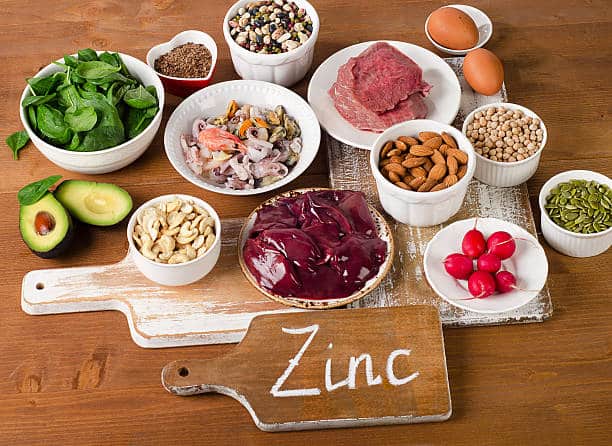Let’s talk about a mineral that often doesn’t get the attention it deserves: Zinc. This essential nutrient has been under the radar for a long time, but its impact on our health can’t be ignored. From bolstering your immune system to healing wounds, zinc plays an invaluable role in a multitude of bodily functions. Yet, the questions often arise: “How long should I wait to eat after taking zinc?” or “What are the exact health benefits?” In this comprehensive guide, we’ll walk you through the importance of zinc, the optimal time for consumption, its health advantages, and potential risks of toxicity. Let’s dive in.
What Exactly Is Zinc?
Zinc isn’t just another mineral; it’s a crucial component that your body needs to function optimally. While it may be famous for giving your immune system a boost, its role is multi-faceted. Zinc is also instrumental in healing wounds, regulating metabolism, and enhancing your senses of taste and smell. Beyond that, there is evidence to suggest that adequate zinc levels can actually shorten the duration of a cold.

The Multifaceted Health Advantages of Zinc
When we talk about the health benefits of zinc, the list is impressively long. Not only does it enhance your immune function, but it’s also key in processes like protein synthesis, cell division, and hormone production. What’s even more fascinating is that it facilitates the chemical reactions of about 300 enzymes in your body. As if that wasn’t enough, zinc also functions as a neurotransmitter, helping your cells communicate effectively. According to the National Institutes of Health (NIH), a lack of zinc can lead to sensory impairments and have detrimental effects on the health of your eyes and skin.
Recommended Dietary Allowances (RDAs) for Zinc
In terms of recommended daily allowances, the Food and Nutrition Board has provided guidelines, segregated by age and gender. Notably, these recommendations encompass all sources of zinc, including food, water, and supplements:
| Age | Male | Female | Pregnant Women | Lactating Women |
| 0-6 months | 2 mg | 2 mg | – | – |
| 7-36 months | 3 mg | 3 mg | – | – |
| 4-8 years | 5 mg | 5 mg | – | – |
| 9-13 years | 8 mg | 8 mg | – | – |
| 14-18 years | 11 mg | 9 mg | 12 mg | 13 mg |
| 19 years and up | 11 mg | 8 mg | 11 mg | 12 mg |
How Long After Taking Zinc Can I Eat?
When it comes to zinc and meal timing, there are specific guidelines you’ll want to follow. Zinc is most effective when consumed either one hour before or two hours after eating. Studies indicate that taking zinc on an empty stomach can lead to gastrointestinal issues. If you experience stomach discomfort, it’s advisable to consume zinc along with a meal. Moreover, it’s crucial to note that zinc can interact negatively with other common minerals like calcium and iron. These interactions can hinder absorption, making your supplements less effective.
Toxicity and Overdose: What Happens When You Take Too Much?
Taking excessive amounts of zinc can result in toxicity, which manifests in various ways. Symptoms of acute zinc poisoning can include nausea, vomiting, stomach pain, and diarrhea. On the other hand, chronic zinc poisoning can result in more long-term issues like reduced immune function and lower levels of ‘good’ HDL cholesterol.
In severe cases, inhaling zinc oxide fumes can lead to a condition known as metal fume fever. This is generally a concern for people in professions like welding. Symptoms such as chills, excessive sweating, and rapid breathing can appear within eight hours of exposure. While this condition is usually temporary, lasting 24–48 hours, the long-term health implications are not entirely understood yet.
Conclusion
Zinc’s role in boosting immune function and its additional health benefits can’t be understated. Not only can it potentially shorten the duration of a cold, but it is also crucial for various physiological processes. While more research is needed to pinpoint the most effective types of zinc for combating different strains of the cold virus, one thing is clear: this is a mineral that deserves a spot in your daily wellness routine. But remember, moderation is key; excessive zinc consumption can have its downsides. With this comprehensive guide, you are now well-equipped to make informed decisions about zinc consumption.

Editorial Staff
Our writers, editors, content managers, and SEO specialist. We all take part in crafting amazing articles. We spend hours ensuring that each article is based on facts, researched, and thorough. You'll never want to click the back button to look for more answers other than here!
